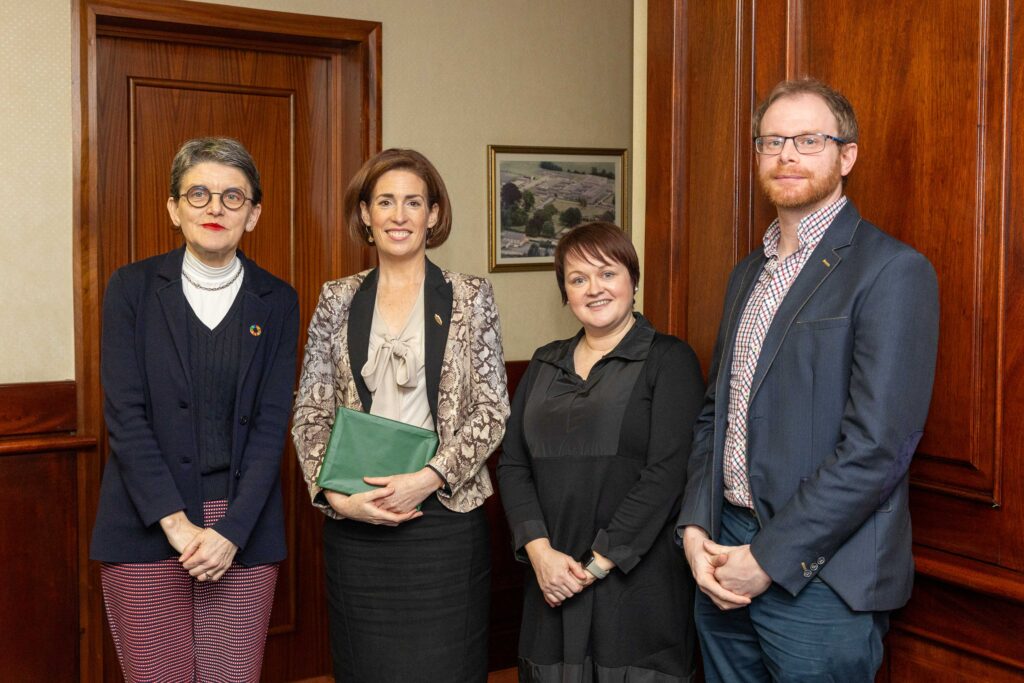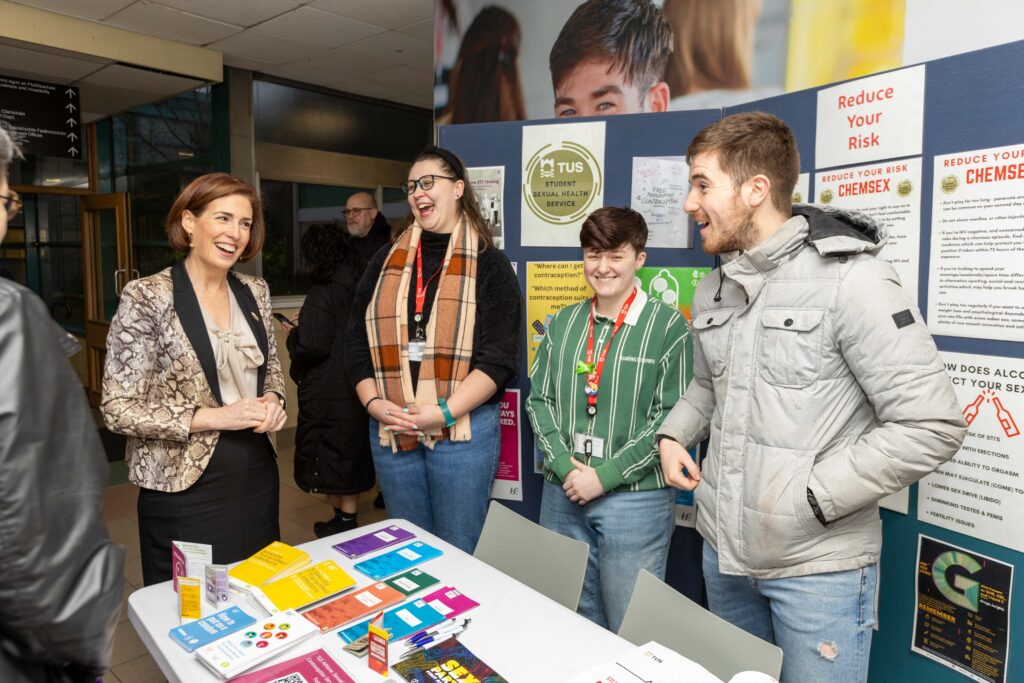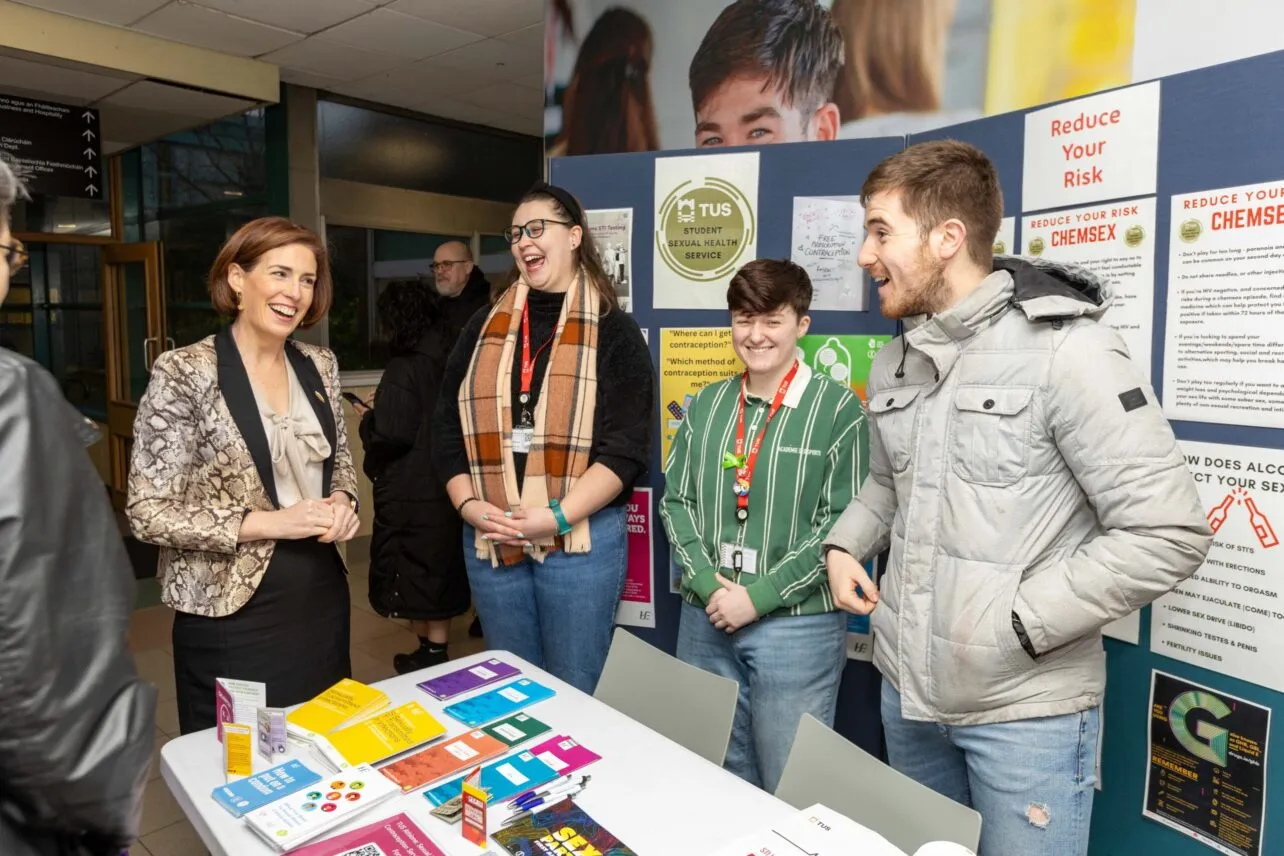Minister of State for Public Health and Wellbeing and the National Drugs Strategy Hildegarde Naughton embarked on a visit to Technological University of the Shannon (TUS), Athlone Campus, today (Thursday, February 8, 2023) where she toured the pioneering student sexual health, contraception and health promotion service.
Her visit coincided with SHAG (Sexual Health Awareness and Guidance) Week, a nationwide student-led campaign aimed at fostering conversations about consent and sexual health awareness among young people.
Introduced in 2021, TUS Athlone’s integrated nurse-led Student Sexual Health Service has garnered acclaim, including a prestigious HSE Excellence Award, for its innovative approach in providing timely and accessible care to students.
Operated on a self-referral basis, the service is cost-free and aims to remove barriers to access such as travel, time and stigma.
It offers confidential sexual health testing, treatment, advising, health education and health promotion programmes, access to contraception and a wide range of specialised sexual health services.
Previously, students had to travel for up to an hour to receive treatment, and data indicated that 90 per cent of those referred to sexual health services were missing their appointments.

Minister Hildegarde Naughton expressed her support for the initiative:
“I’m very pleased to be in TUS Athlone today to see how a project that was originally piloted under our Sláintecare Integration Fund has grown to become a core part of TUS’s health service. Sexual health is a key component of overall health and it’s vital that it is promoted within higher educational settings.
“The resources and services provided here help prevent against unplanned pregnancies, sexually transmitted infections, as well as supporting students in developing a responsible approach to their personal health and relationships.
“I recognise that the sexual health services available at TUS Athlone are helping to create a campus culture that values and respects the diverse sexual health needs of students, as well as moulding a population that understands the importance of consent, healthy relationships and the prevention of sexually transmitted infections.
“It responds to clear student demand and it is my hope intention to ensure that high quality services such as this are extended to the wider student population. Work is already underway in reviewing existing sexual health service provision in third-level institutions with a view to developing and enhancing services throughout the country.”
Welcoming Minister Naughton to the campus, VP for Student Education and Experience across TUS Frances O’Connell lauded the service as “a model of best practice and an innovation in primary care where student health concerns can be addressed in a space free from judgement, which is easily accessible on campus and publicly acknowledged as effective.”
“Through self-referral, students gain access to all of the necessary information and supports they might need, enabling them to prioritise their academic pursuits free from worry. We are extremely proud of what has been achieved on our Athlone Campus since this pilot programme was introduced and hope we can extend this model of care that is suitable for each of our seven campuses, in the near future, with the support of HSE funding” she said.

Sexual Health Service Manager Nurse Laura Tully stressed the importance of on-campus sexual healthcare, especially amid rising STI rates among young people:
“Recent data underscores the urgency of addressing STIs in young people, with a doubling in the rate of the diagnoses of some STI notifications between 2022 and 2023. Our on-campus service plays a vital role in providing students with easy access to high-quality sexual healthcare and age-appropriate advice. By removing barriers like travel time, stigma and fear of absenteeism from class, we ensure students can prioritise their well-being and therefore their academic success.”
GP Clinical Lead Dr Tom Walsh noted, “The provision of the campus service has contributed to a healthier and more informed student population and an ultimate reduction in the medical and socio-economic burdens of STIs.”


